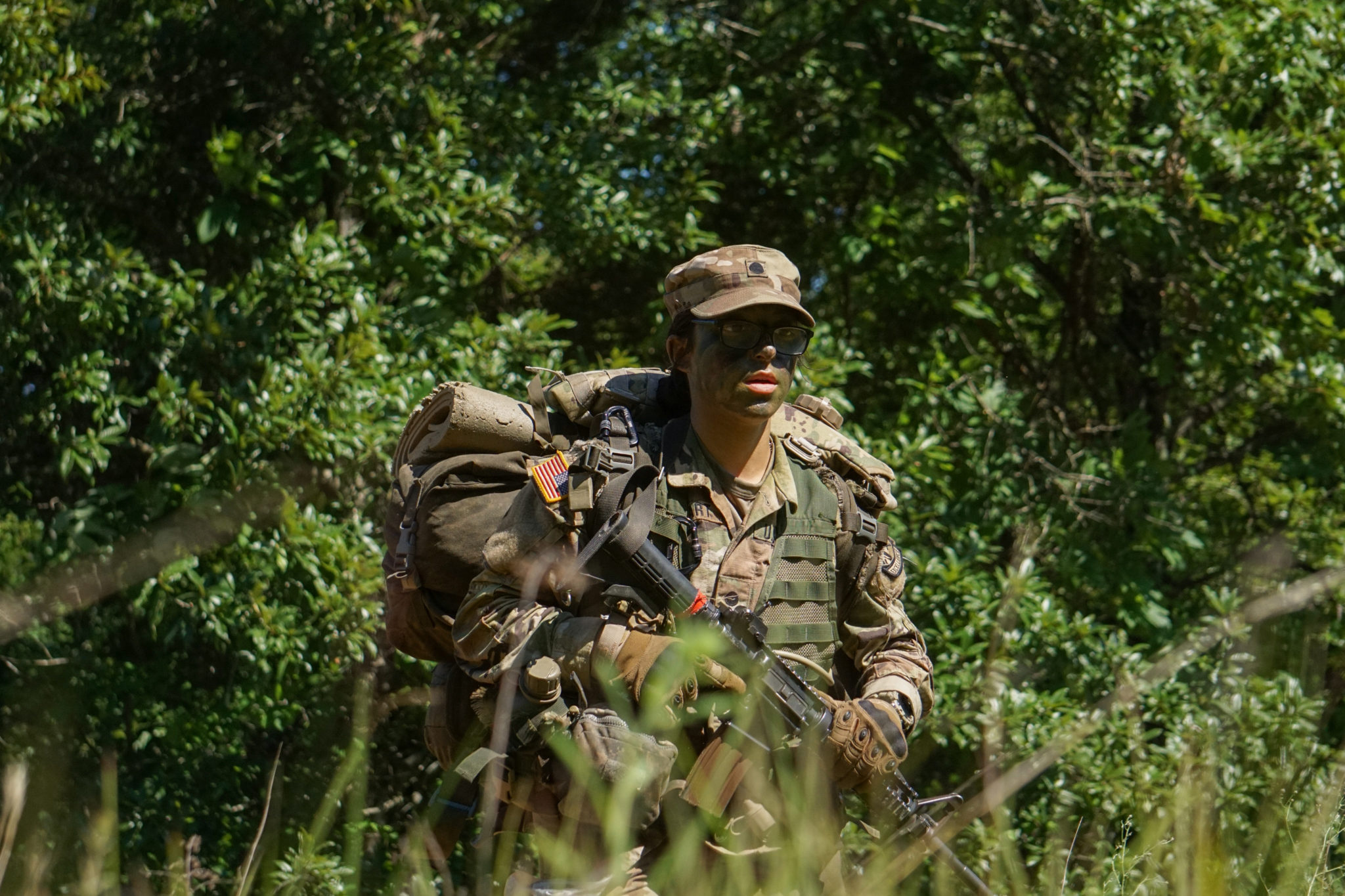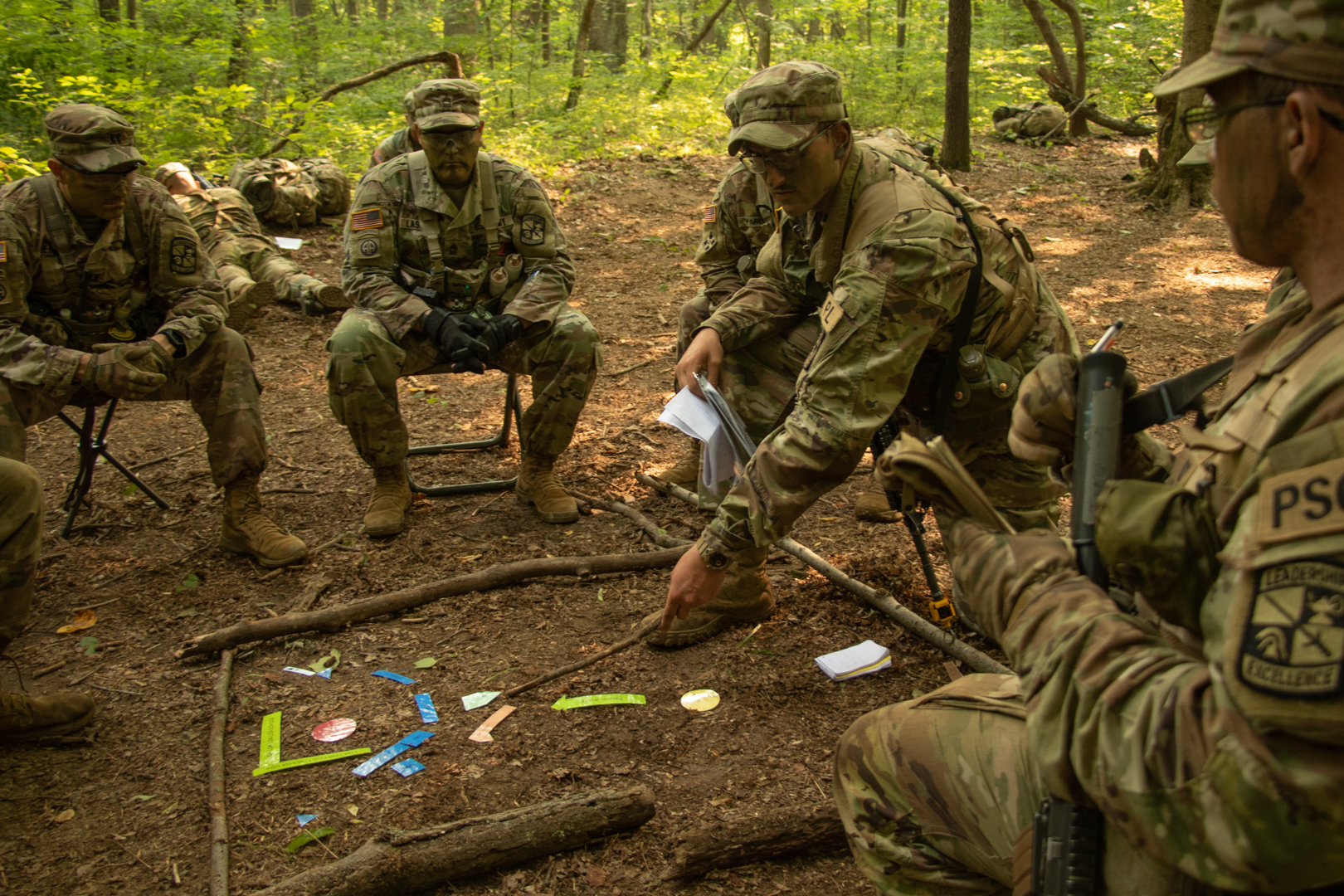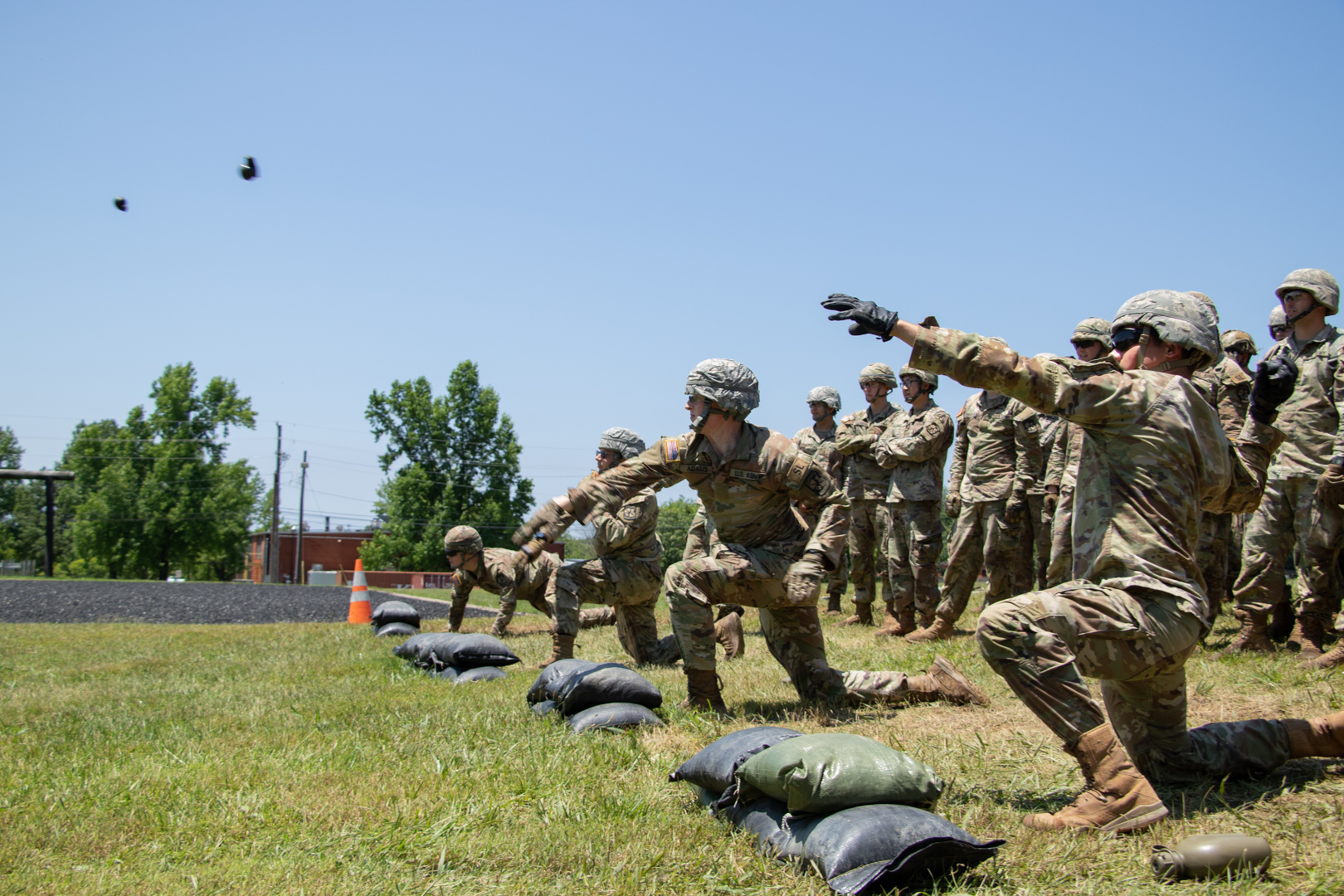2nd Regiment Basic Camp Cadets worked as a team to complete obstacles at the Field Leader Reaction Course (FLRC) on July 15, 2021.
The FLRC is a set of nine obstacles where Cadets are tasked with completing a mission from the scenario they are briefed on. Every obstacle is different, but they all focus on the importance of leadership and teamwork.
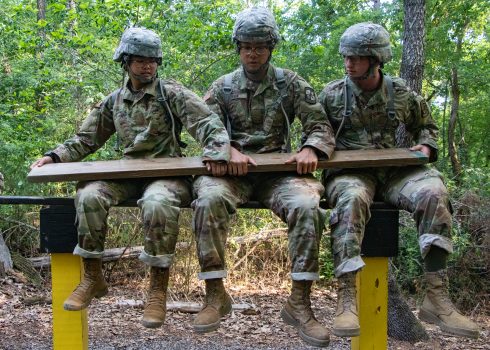
“They have to accomplish something as a team,” said Staff Sgt. Jamie Mrazek. “We assign a team leader or a squad leader. They utilize the equipment that they have to traverse the obstacle, whatever the goal is whether it’s to go over a wall or utilize a rope to get from obstacle to obstacle.”
Mrazek is the platoon training officer for 2nd Regiment Basic Camp Bravo Company. He says the FLRC has been beneficial not only for the team but for individuals too.
“It seems like the ones put into leadership positions are really taking that and running with it,” said Mrazek. “Even some of the quieter Cadets who are typically more recluse are kind of breaking out of their shell.”
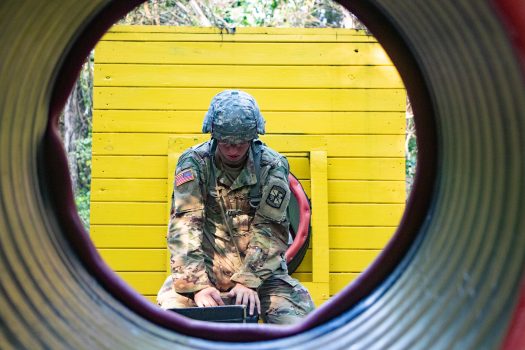
Cadet Esteban Montalvo, from the University of Puerto Rico Mayagūez, played the role of squad leader at station two, Barrel Roll.
“My mission was to get supplies to the other side of the bridge and the personnel,” Montalvo said. “So far we only restored part of the bridge, but maybe next time, we’ll get it.”
After leading a mission and watching his peers lead, Montalvo noticed that his squad was missing a crucial detail in their execution.
“You can have the best plan in the world, but if you can’t communicate it correctly to your peers, you’re not going to get anywhere,” Montalvo said.
Good communication means knowing when to talk and when to listen. Similarly, part of leadership is knowing when to take charge and knowing when to follow. Cadet Caleb Bonilla, from St. Mary’s University in San Antonio, Texas, learned this today.
“When I was squad leader I just used whatever information or knowledge I had from the past for the obstacle,” Bonilla said. “When I’m in a following standpoint I just do what I’m told, use whatever abilities I’m best at just to compliment the team.”
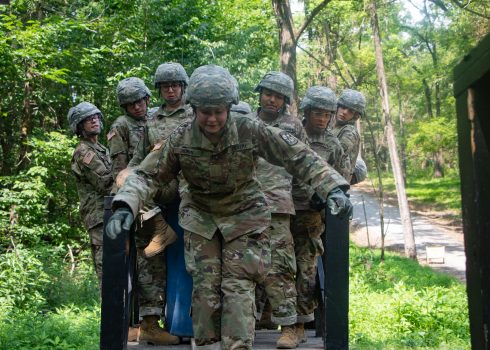
The Cadets were not able to complete most of the obstacles, but they still learned a lot from the challenges they faced. They practiced leading and following, problem solving and using good communication skills. This course also taught them that failure is normal.
“One of the obstacles is called ‘Sabotage’ and there’s not even really a solution to it,” said Mrazek. “They’re going to fail some of the obstacles, but that’s kind of part of leadership, failure,”

